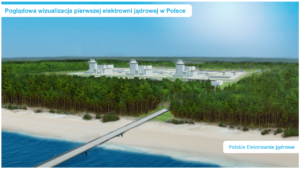Moldova will not start negotiations on a new gas contract with Russian Gazprom. It is waiting for an alternative of a gas pipeline from Romania and intends to compare offers after its construction. This is how the policy of diversification works, also conducted by Poland – writes Wojciech Jakóbik, editor-in-chief of BiznesAlert.pl.
The example of Moldova
„Until the Kishinev-Ungeny gas pipeline is put into operation, the Moldovan government will not conduct talks on the conclusion of a new gas supply contract with the Russian Gazprom. We want the alternative gas to be available as soon as possible. Then there will be competition and everyone will fight for us as a client. Both will offer better prices (…) „- said the Moldovan economy and infrastructure minister on Sunday in the interview for one of the Moldovan television stations quoted by the Polish Press Agency. Moldova’s gas contract is renewed every twelve months since 2008. Gazprom provides up to 3 bcm annually. The Kishinev-Ungeny gas pipeline will connect Moldova with the Romanian gas transmission system. Meanwhile, Romania is a growing producer of this raw material and can provide an alternative to supplies from Russia. Thanks to the development of infrastructure, Moldovans will gain the freedom to choose which will allow them to reach for the best offer.
Plan of Poland
The Polish diversification program operates on a similar basis. Thanks to the existing LNG terminal and the planned Baltic Pipe gas pipeline from Norway, the Poles will be given the opportunity to freely choose the supplier. However, the construction of our gas contract with Gazprom is different than in Moldova. It applies until the end of 2022, and the negotiations of the new time interval should start in 2019. The Polish government declares, however, that it does not want to extend this agreement, although it does not exclude the new one, on more flexible terms. Considering the possibility of importing gas from the LNG terminal planned for 2022 at the level of 7,5 bcm annually and from Baltic Pipe to 10 bcm annually, even with an increase in domestic demand in Poland from the current 15 billion to 20 bcm a year, thanks to the freedom of choice, it may be possible to reduce purchases from Russia. If the demand increases more, lowering purchases from Russia will be more difficult and perhaps the government is not going to switch the Polish energy sector to uncritical gas. One can imagine that under favorable conditions Poland will obtain a small, flexible contract, like Moldova, which will cease to be a political problem, like the Yamal contract.
Diversification and liberalization
Diversification is a never-ending process of improving gas availability on the Polish market in order to provide the best offer to Polish clients. The next process is liberalization, which in Poland fell victim to diversification projects. The Polish government says: first diversification, then liberalization. Its critics say that both processes can be carried out in parallel. The challenge for this thesis is that the release of the gas market in Poland may open the way to conquest with the use of supplies from the German market, dominated by Russian gas. Despite lower prices, it would not be a real diversification, which Warsaw counts on. This means that customers will have to wait for cheaper gas guaranteed by liberalization. Something for something.








